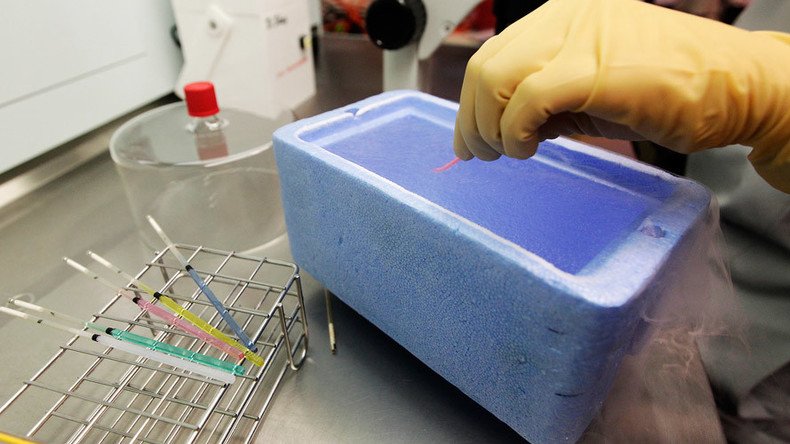Japan tackles low birth rate by offering public funds to freeze women’s eggs

Public funds will be made available to women living in a suburb of Tokyo who wish to freeze their eggs as part of a pilot program aimed at reversing Japan’s falling birth rate.
The city of Urayasu, about 14 kilometers (9 miles) east of Tokyo, is allocating 90 million yen ($850,000) over a three year period towards the research project of Juntendo University Urayasu Hospital.
The hospital hopes the program will encourage women to consider having children at a later stage instead of deciding not to have children at all.
In what is likely a world first for the use of public funds, Dr. Iwaho Kikuchi told AP that a dozen women are currently in the process of freezing their eggs under the program.
The project is limited to women living in the area aged between 25 and 34 who can pay 20 percent of the total cost, which averages between 500,000 to 600,000 yen ($4,700 to $5,700).
Urayasu Mayor Hideaki Matsuzaki called the low birth rate a national problem: “In general, pregnancy and childbirth is an individual issue. But when the situation has become this far, I consider it a social problem,” Matsuzaki said. “I view using public expenditure as the right thing to do.”
Honey, I shrunk the kids: #Japan's child population hits historic low https://t.co/VCo2ye1yippic.twitter.com/MOgECe76N9
— RT (@RT_com) May 5, 2016
Figures recently released by Japan’s Ministry of Internal Affairs and Communications showed the number of children under 15 has hit a historic low and that newborns to 2-year-olds was the smallest group in the country’s child population.
Japan has a fertility rate 1.4 births per woman, one of the lowest in the world, according to World Bank data.
More women are now freezing their eggs for the future – 562 women at 23 different medical facilities had had their eggs frozen by the end of February 2016, according to The Japan News.
A woman in her 40s from Osaka gave birth to a baby last year using her own frozen egg in what is believed to be the first such case in Japan involving a healthy woman. Egg freezing has traditionally been used to help women who risk becoming sterile due to cancer treatments or other reasons.
Japan has an ageing population, with the latest census revealing that more than a quarter of all Japanese were aged over 65 in 2015. This is predicted to rise to nearly 40 percent by 2060, according to the National Institute of Population and Social Securities Research.
The census also revealed that the population had fallen by more than a million in five years, prompting the government to draw up urgent measures to deal with the dwindling birth rate.
Japan’s birth rate fell to a record low in 2014, the same year the government allocated 3 billion yen (about $29.3 million) to fund a program to help lift birth rates.
Among the more novel initiatives to be funded was matchmaking parties. The government vowed to support local authorities who organized matchmaking events in the hope that it would contribute to a baby boom.
Prime Minister Shinzo Abe also proposed easing regulations concerning the provision of childcare, making it easier for women to return to work after giving birth.
Japan experienced its first increase in newborns since 2010 last year, as the number rose by around 4,000 from the previous year to 1,008,000, so maybe those matchmaking parties have been working after all.












